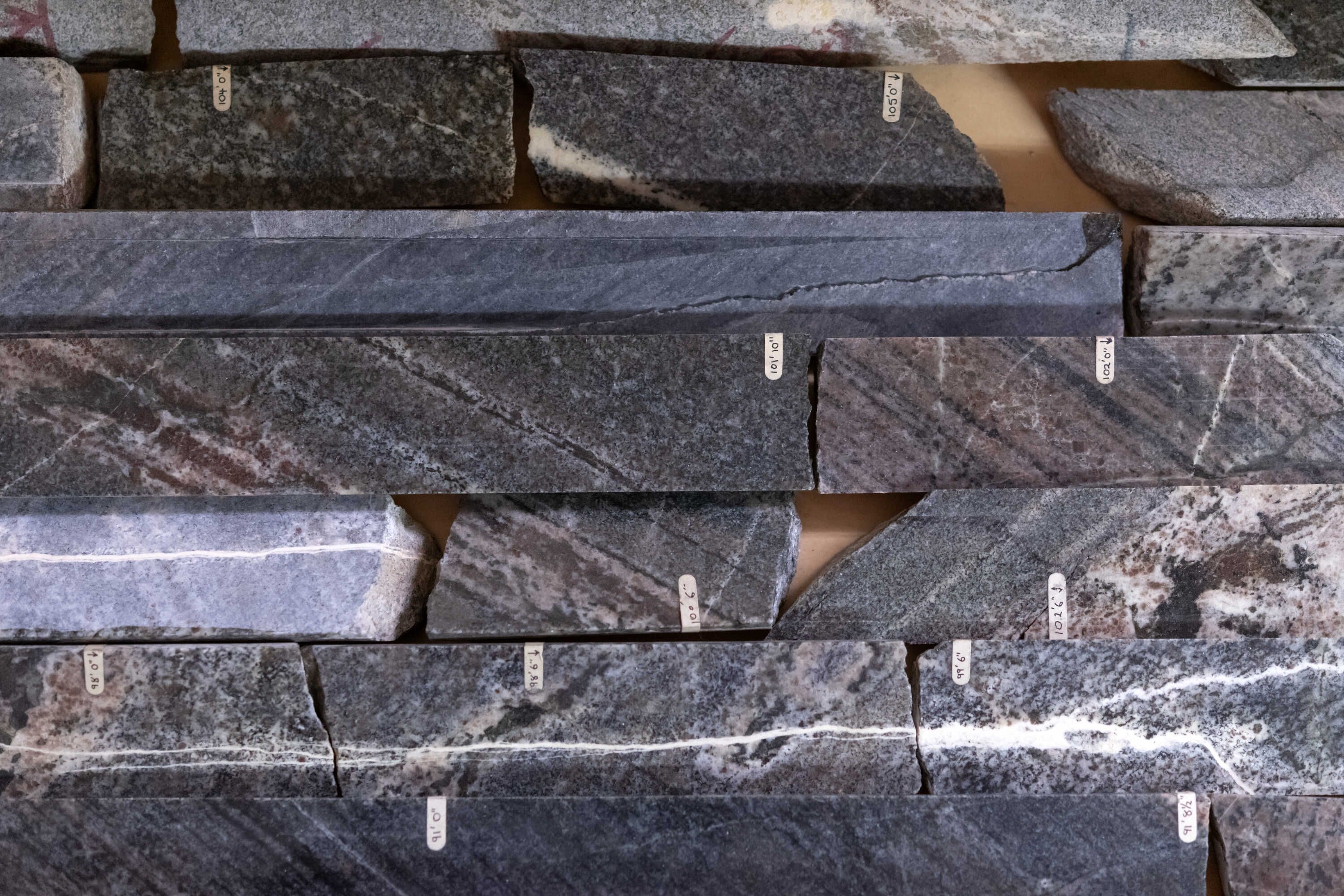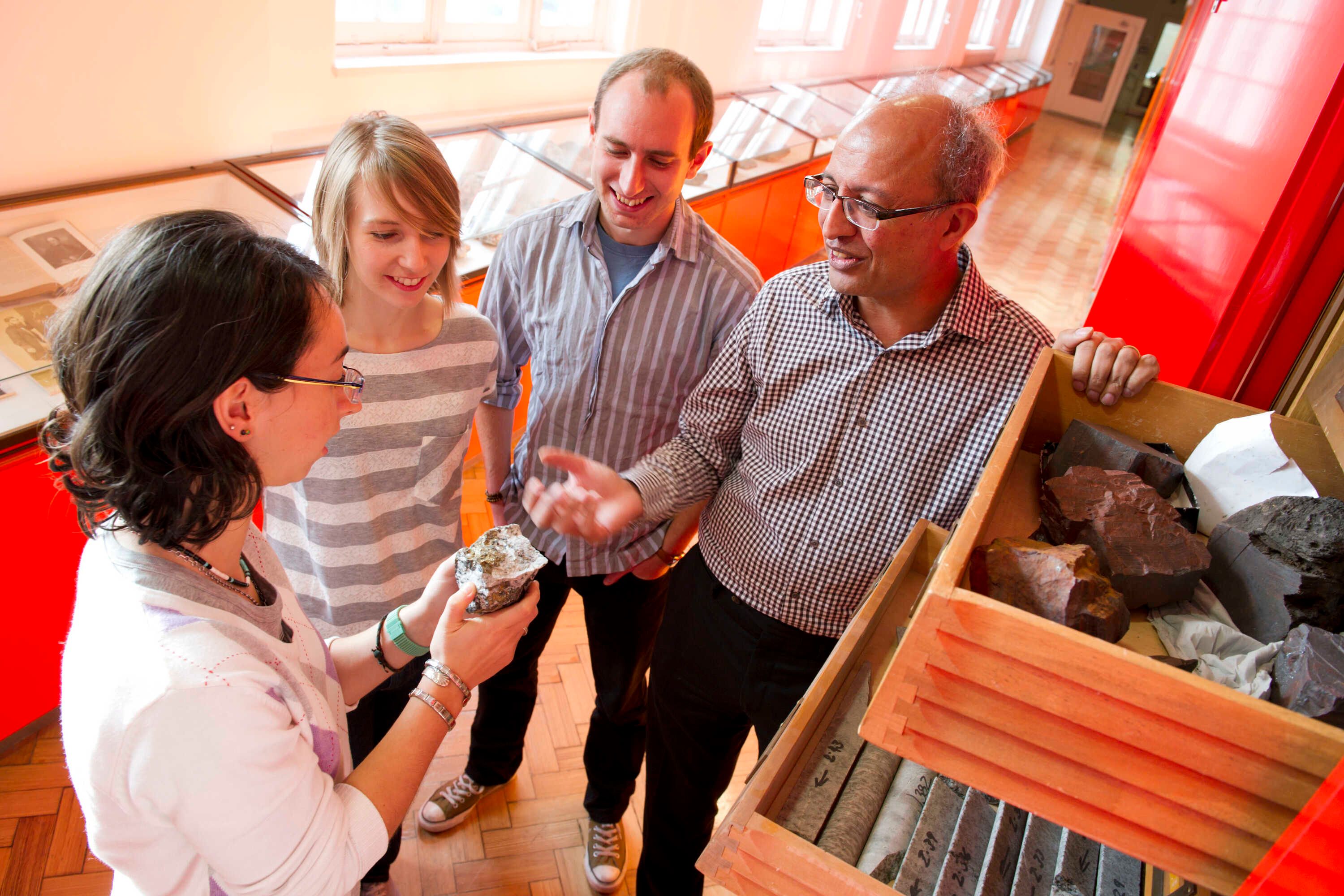
Metals and Energy Finance
Deepen your understanding of the technical and financial assessment of natural energy and mineral resources.
Deepen your understanding of the technical and financial assessment of natural energy and mineral resources
Gain first-hand experience of industry practice
Receive training in financial modelling, financial engineering and risk modelling
Course key facts
Qualification
MSc
Duration
1 year
Start date
September 2025
Study mode
Full-time
-
Fees
£29,900 Home
£46,600 Overseas
Delivered by
Location
-
South Kensington
-
Minimum entry standard
2:1 in Engineering, Physical Sciences or Economics with a substantial Mathematics component
Course overview
Enhance your understanding of the technical and financial assessment of natural energy and mineral resources on the Master's course.
Run jointly by the Department of Earth Science and Engineering and Imperial College Business School, this course will help you understand the financial risk and uncertainty pertinent to this sector.
You'll carry out traditional minerals-related training directly applicable to a career in this industry and become familiar with key technical and geological concepts relevant to the evaluation of projects in the natural resources sector.
Training in financial modelling, financial engineering and the techniques of risk modelling will be provided.
An extensive field trip in the summer term will also allow you to gain direct industry insights and develop your practical skills.
This course and the information on this page are subject to College approval. Please check back soon for the latest information.
Structure
This page is updated regularly to reflect the latest version of the curriculum. However, this information is subject to change.
Find out more about potential course changes.
Please note: it may not always be possible to take specific combinations of modules due to timetabling conflicts. For confirmation, please check with the relevant department.
You’ll take all of these core and compulsory modules.
Core modules
Explore the use of business accounting, cash flow modelling and strategic management while concentrating on the relationship between companies and investors.
Develop your knowledge of the fundamentals of geology and geoscience and assess the geological factors that influence deposit type formations, discoveries and extractions.
Learn to focus on the technical and financial evaluation of natural resource projects, with a particular focus on mining and project finance and appraisal.
These trips will allow you to gain first-hand experience of all aspects of the extraction industry and put concepts and skills into practice.
Compulsory modules
Learn about the growing markets for derivatives contracts, and obtain the necessary skills to value and use derivatives instruments in a purposeful way.
Gain a critical understanding of important investment and portfolio management techniques used for portfolio management by fund managers, risk managers, pension funds and other financial institutions.
Analyse the theory of asset pricing and relevant mathematical tools and understand fundamental concepts such as state prices, arbitrage, payoff replication, and risk-neutral pricing.
Depending on the levels of mathematics that you demonstrate in your application forms, you will be allocated to the Science and Economics Group or the Engineering and Mathematics Group.
Those in the Science and Economics group will take an additional Foundation Mathematics module.
You will evaluate a resource project by conducting an independent analysis to determine whether it can be technically and financially successful. Your research will involve identifying a project that has not been initiated, but has enough technical and financial information to support your analysis.
You'll need to build a financial plan for this project and write a dissertation explaining the technical and financial findings of your analysis.
Professional accreditation
This course is professionally accredited by The Institute of Materials, Minerals and Mining.
Achieving a professionally accredited degree demonstrates to employers that you have achieved an industry-recognised standard of competency. It also brings international recognition of your qualification, which is particularly useful for students preparing for a career abroad.
Our accreditation agreement with The Institute of Materials, Minerals and Mining is renewed every 5 years, and the current agreement runs between 2023 and 2028.
Teaching and assessment
Balance of teaching and learning
Key
- Lectures and tutorials
- Independent study
- 51% Lectures and tutorials
- 49% Independent study
Teaching and learning methods
-
Virtual learning environment
-
Dissertations
-
Field trips
-
Interactive lectures
-
Literature-based assignments
-
Guest presentations
-
Syndicate exercises and group work
-
Video-recorded presentations
Balance of assessment
Key
- Examinations
- Excursions
- Dissertation
- 43% Examinations
- 28% Excursions
- 28% Dissertation
Assessment methods
-
Coursework
-
Dissertations
-
Syndicate exercises (group work)
-
Appraisal sheets from field trips
Entry requirements
We consider all applicants on an individual basis, welcoming students from all over the world.
How to apply
Apply online
You can submit one application form per year of entry. You can choose up to two courses.
Application deadlines – Round 1 closes on Thursday 16 January 2025
We operate a staged admissions process with several application rounds throughout the year.
Apply by 23.59 (UK time) on the closing date of an application round, to ensure you receive a response on your application by the relevant decision date.
Application rounds
Round 1
- Applications open on Friday 27 September 2024
- Applications close on Thursday 16 January 2025
- Decision by Thursday 6 March 2025
Round 2
- Applications open on Friday 17 January 2025
- Applications close on Thursday 27 March 2025
- Decision by Thursday 1 May 2025
Round 3
- Applications open on Friday 28 March 2025
- Applications close on Thursday 15 May 2025
- Decision by Thursday 17 July 2025
We strive to increase and broaden inclusivity and support everyone, regardless of background, in breaking down any barriers to your application the Department.
If you are interested in this MSc, we strongly encourage you to contact the course administrator Joanna Owen prior to starting your application: j.owens@imperial.ac.uk.
There is no application fee for MRes courses, Postgraduate Certificates, Postgraduate Diplomas, or courses such as PhDs and EngDs.
If you are applying for a taught Master’s course, you will need to pay an application fee before submitting your application.
The fee applies per application and not per course.
- £80 for all taught Master's applications, excluding those to the Imperial College Business School.
- £100 for all MSc applications to the Imperial College Business School.
- £150 for all MBA applications to the Imperial College Business School.
If you are facing financial hardship and are unable to pay the application fee, we encourage you to apply for our application fee waiver.
Find out more about how to apply for a Master's course, including references and personal statements.
Unless you are from an exempt nationality, you will need an ATAS certificate to obtain your visa and study this course.
Nationals from the following countries are exempt: Switzerland, Australia, Canada, Japan, New Zealand, Singapore, South Korea, USA and EEA members.
Use this information when applying for an ATAS certificate to study this course:
CAH code: CAH10-01-09
Descriptor: Chemical, Process and Energy Engineering
Supervisor name: Professor Stephen Neethling
Get guidance and support for obtaining an ATAS certificate.
Tuition fees
Home fee
2025 entry
£29,900
You should expect and budget for your fees to increase each year.
Your fee is based on the year you enter the university, not your year of study. This means that if you repeat a year or resume your studies after an interruption, your fees will only increase by the amount linked to inflation.
Find out more about our tuition fees payment terms, including how inflationary increases are applied to your tuition fees in subsequent years of study.
Whether you pay the Home or Overseas fee depends on your fee status. This is assessed based on UK Government legislation and includes things like where you live and your nationality or residency status. Find out how we assess your fee status.
If you're a UK national, or EU national with settled or pre-settled status under the EU Settlement Scheme, you may be able to apply for a Postgraduate Master’s Loan from the UK government, if you meet certain criteria.
For courses starting on or after 1 August 2024, the maximum amount is £12,471.
The loan is not means-tested and you can choose whether to put it towards your tuition fees or living costs.
Overseas fee
2025 entry
£46,600
You should expect and budget for your fees to increase each year.
Your fee is based on the year you enter the university, not your year of study. This means that if you repeat a year or resume your studies after an interruption, your fees will only increase by the amount linked to inflation.
Find out more about our tuition fees payment terms, including how inflationary increases are applied to your tuition fees in subsequent years of study.
Whether you pay the Home or Overseas fee depends on your fee status. This is assessed based on UK Government legislation and includes things like where you live and your nationality or residency status. Find out how we assess your fee status.
If you're a UK national, or EU national with settled or pre-settled status under the EU Settlement Scheme, you may be able to apply for a Postgraduate Master’s Loan from the UK government, if you meet certain criteria.
For courses starting on or after 1 August 2024, the maximum amount is £12,471.
The loan is not means-tested and you can choose whether to put it towards your tuition fees or living costs.
How will studying at Imperial help my career?
Learn the skills required to pursue careers in natural energy and mineral resource appraisal.
Build relationships with professionals working in metals, energy, and finance
There are potential internships available in the mining, oil, and gas sector, as well as investment banking.
Typical career paths include financial services or roles in the minerals and petroleum industries.
Further links
Contact the department
- Telephone: +44 (0)20 7594 6462
- Email: j.owens@imperial.ac.uk
Course Director: Professor Stephen Neethling
Visit the Department of Earth Science and Engineering website.

Request info
Find out more about studying at Imperial. Receive updates about life in our community, including event invites and download our latest Study guide.

Events, tasters and talks
Meet us and find out more about studying at Imperial.

Terms and conditions
There are some important pieces of information you should be aware of when applying to Imperial. These include key information about your tuition fees, funding, visas, accommodation and more.
You can find further information about your course, including degree classifications, regulations, progression and awards in the programme specification for your course.
Programme specifications